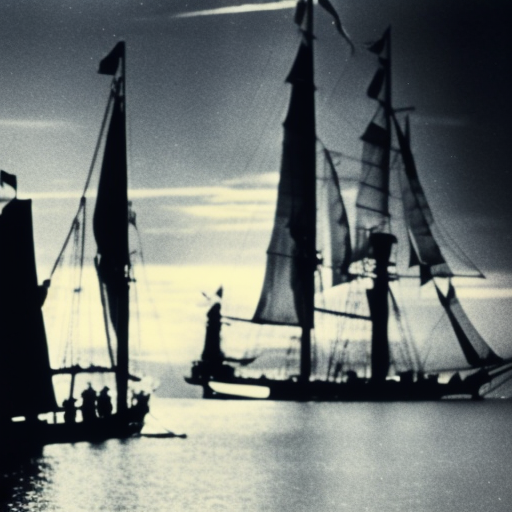Summary:
Christopher Columbus’ first voyage was a significant event in world history that marked the beginning of European exploration and colonization of the Americas. In 1492, Columbus set sail from Spain with three ships, the Santa Maria, the Pinta, and the Niña, aiming to find a westward route to Asia. After a long and arduous journey, he reached the Bahamas, believing he had arrived in the East Indies. This voyage opened the door to further exploration and colonization of the New World by European powers.
The Background:
In the late 15th century, European powers were eager to find new trade routes to Asia, bypassing the Ottoman Empire’s control over the land routes. Christopher Columbus, an Italian explorer, proposed a plan to reach Asia by sailing west across the Atlantic Ocean. After several rejections, he gained the support of Queen Isabella and King Ferdinand of Spain, who provided him with the necessary funds and ships for his expedition.
The Voyage:
On August 3, 1492, Columbus set sail from Palos, Spain, with his crew of about 90 men on three ships. After a month at sea, they encountered the Canary Islands, where they made final preparations before heading into the unknown. The journey was long and challenging, with the crew facing storms, navigational difficulties, and the constant fear of running out of supplies.
Discovery of the New World:
On October 12, 1492, after more than two months at sea, Columbus and his crew finally spotted land. They had arrived in the Bahamas, specifically an island he named San Salvador. Thinking he had reached the East Indies, Columbus referred to the indigenous people he encountered as “Indians.” He continued exploring the surrounding islands, including Cuba and Hispaniola (present-day Haiti and the Dominican Republic), before returning to Spain in 1493.
Impact and Controversy:
Columbus’ first voyage had a profound impact on world history. It opened up a new era of exploration and colonization, leading to the eventual establishment of European colonies in the Americas. The voyage also sparked a wave of exploration by other European powers, such as Portugal, England, and France.
However, Columbus’ legacy is also marred by controversy. His arrival in the Americas had devastating consequences for the indigenous populations, including forced labor, disease, and displacement. Additionally, Columbus’ mistaken belief that he had reached Asia perpetuated the misnaming of Native Americans as “Indians” and contributed to centuries of misunderstanding and mistreatment.
Conclusion:
Christopher Columbus’ first voyage was a pivotal moment in history, marking the beginning of European exploration and colonization of the Americas. Despite the controversy surrounding his legacy, his voyage opened up a new world of possibilities and forever changed the course of history. The impact of this voyage can still be felt today, as it laid the foundation for the eventual establishment of European colonies and the shaping of the modern world.












